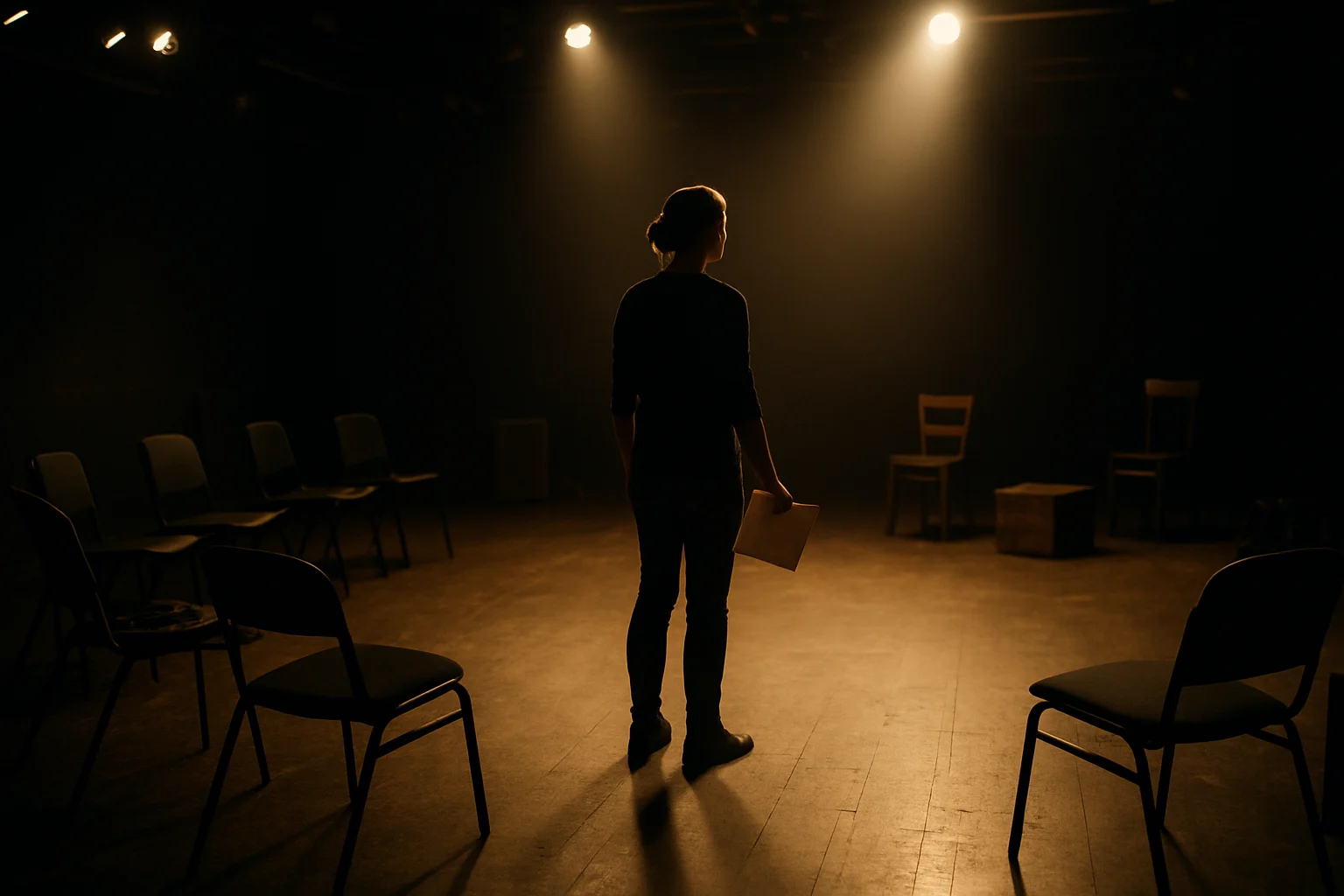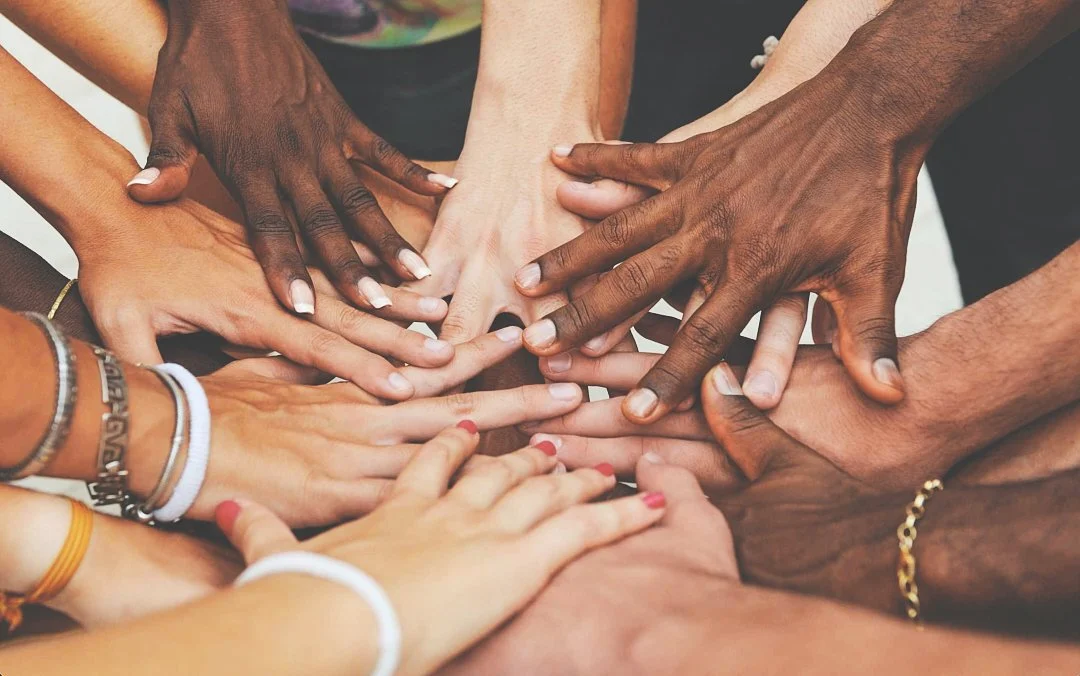🎧 Coming Soon! Listen to Ep 10: Living the Code where I take a closer look at my own values and how this has made an impact on my leadership style and perspective.

Before I knew what a personal code of ethics was, I was already living one, just not consciously. What’s kept me in this work isn’t the art alone. As Jonathan Miller said, “what makes theatre special isn’t the art itself, but the people who make the art.” That’s what got me hooked. That’s what keeps me here.
When I began defining my leadership style more intentionally, I kept circling back to one idea: why? Why do I lead? Why do I stage manage? Why do I come back show after show, production after production? For me, the answer is simple and complex all at once—because people matter. Because I believe in a human-first approach to leadership, even when the headset is crackling and the cues are flying.
If you’re interested in style, you can read more about Stage Management Style here.
As Simon Sinek says, “people don’t buy what you do; they buy why you do it.” My “why” is rooted in the belief that leadership starts with self-awareness and expands outward. I created this code of ethics not to frame a brand or follow a trend, but to clarify my foundation. It’s a guidepost in the chaos, a check-in point during the noise. And I believe every leader—especially those of us working in live events and entertainment—should take the time to write one for themselves.
This personal code isn’t fixed. It evolves as I do. But what grounds me is the ongoing pursuit of discovery, reflection, and service to the people who make this art possible.
Let’s start where all meaningful progress does: with the self. This is a personal one for me, and to model that even more, I’ll be using personal reflections from my own personal code of ethics and share with you the “I Statements” I created for myself in each section to help keep my center in those moments I find myself feeling lost.
Learning as a Leadership Practice
The best leaders I’ve worked with aren’t the ones who know everything. They’re the ones who keep learning. Self-inquiry isn’t self-indulgent—it’s self-maintenance. It keeps us aligned with our values and nimble in our work. When I root myself in curiosity, I not only sharpen my own perspective, but I invite others into the journey with me. Growth doesn’t happen in a vacuum. It happens in community.
- I share what I’m learning to foster dialogue and mutual development.
- I seek new knowledge even when it challenges what I think I know.
- I believe that when one person grows, the whole team benefits.
And the moment we start to grow internally, we begin to connect more deeply with the people around us.
Relationships Built on Respect
A team is more than a lineup on a contact sheet. It’s a web of trust, energy, and intention. When we treat every relationship as a collaborative effort, we invest in each other’s success, not just our own. Giving is just as important as receiving. We honor process over ego. We remember that communication isn’t just about being heard—it’s about listening with presence and intention.
- I listen to every voice with the belief that all perspectives matter.
- I name and navigate communication misalignments with care.
- I celebrate others’ victories as if they were my own.
The stronger our relationships, the better we adapt when things get messy. Relationships are everything.
The Power of Flexibility
If there’s one guarantee in live events, it’s that nothing will go exactly as planned. And that’s not a failure, it’s a feature. Flexibility isn’t about being passive or vague. It’s about being so grounded in your purpose that you can respond, revise, and reinvent on the fly. Adaptability is a muscle, and like any muscle, it gets stronger with use.
- I ask questions and offer feedback to support the group’s evolution.
- I approach new disciplines with openness and creative energy.
- I regularly re-evaluate my roles and goals based on the team’s needs.
This kind of creative flexibility clears the path for boldness. And boldness is where real change begins.
Brave Enough to Go First
We talk a lot about courage as a trait, but it’s actually a series of choices. Courage is choosing to ask the hard question, to call out a broken system, to risk looking foolish in pursuit of something better, to ask for help. When we lead with authenticity, it naturally invites others to do the same.
- I identify and speak aloud the unspoken norms I notice.
- I give and receive feedback with respect and an open mind.
- I show up vulnerably in my work and my community.
Courage is contagious. It’s the kind of thing that ripples outward, inviting others to show up just as fully, just as fearlessly.
Ethics in Practice
Your personal code of ethics isn’t a set-it-and-forget-it document. It’s a living, breathing part of your leadership and who you are as a human. It’s how you respond to pressure, how you navigate conflict, and how you stay grounded in your values even when the headset batteries die, the call sheet is outdated, and the scene change goes sideways.
It’s how you show up—every day.
📌 Want more ways to build teams that thrive, not just survive? Subscribe to Half-Hour for weekly reflections on backstage leadership, burnout prevention, and creating cultures people actually want to work in. Join here



